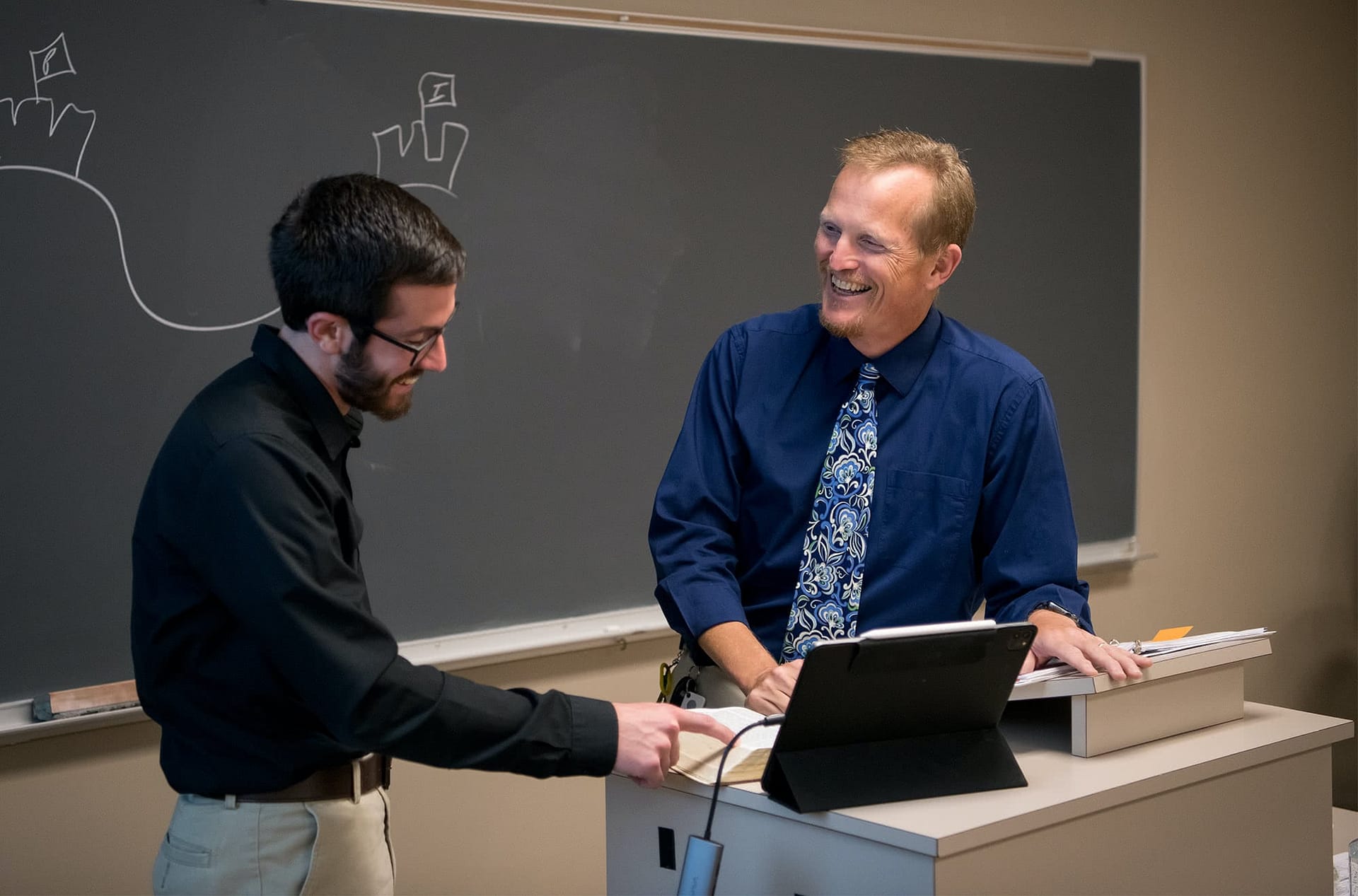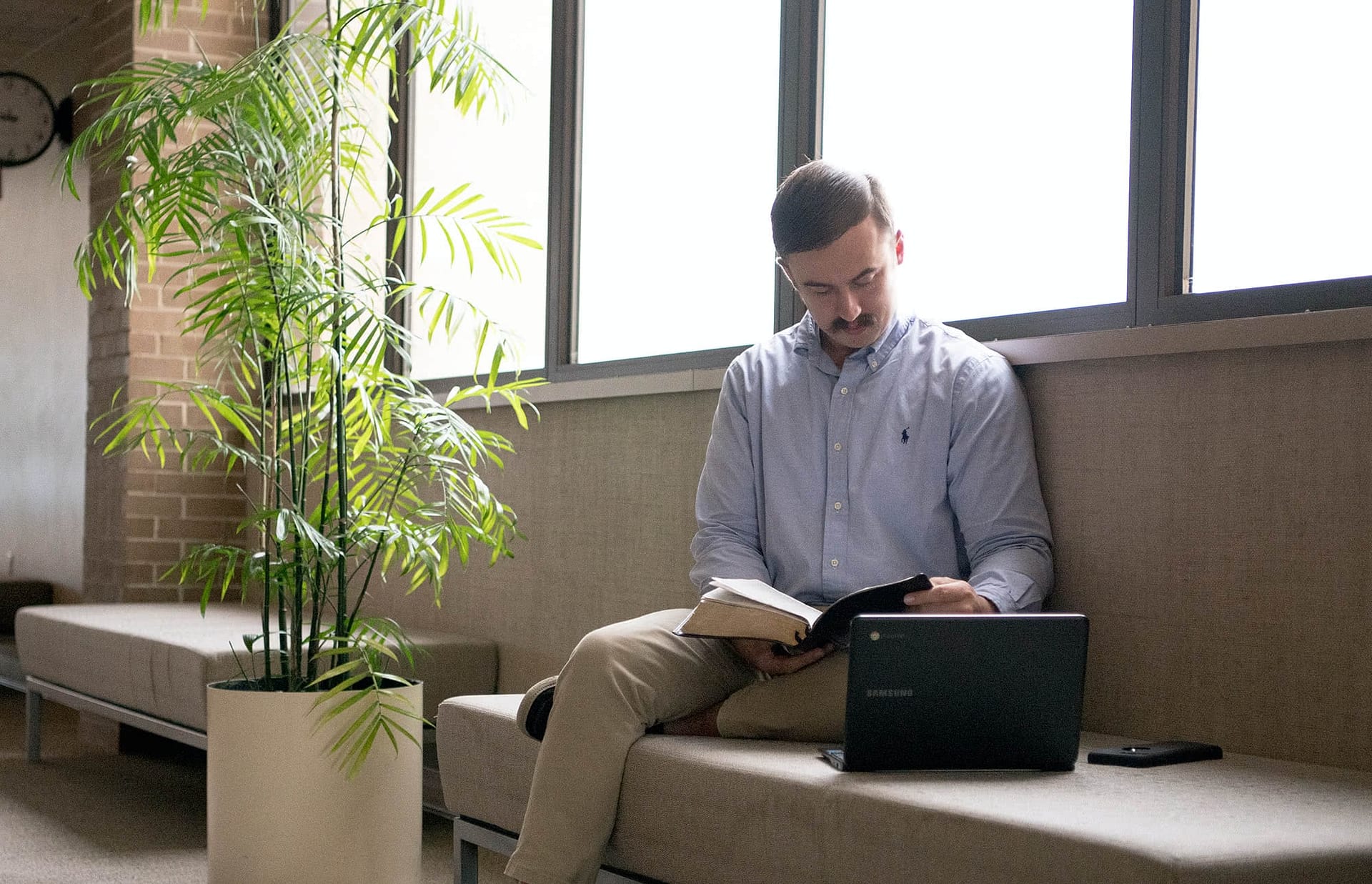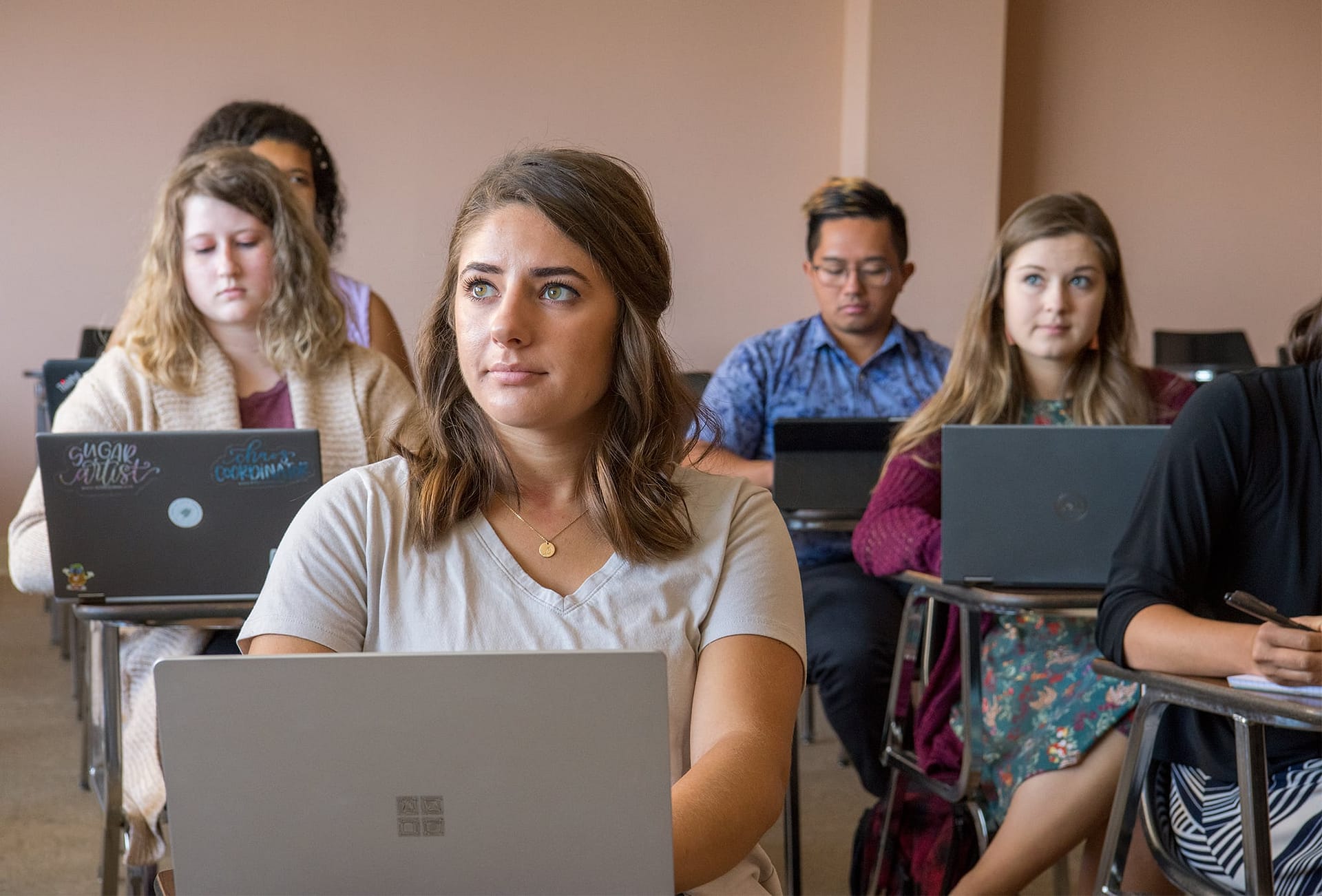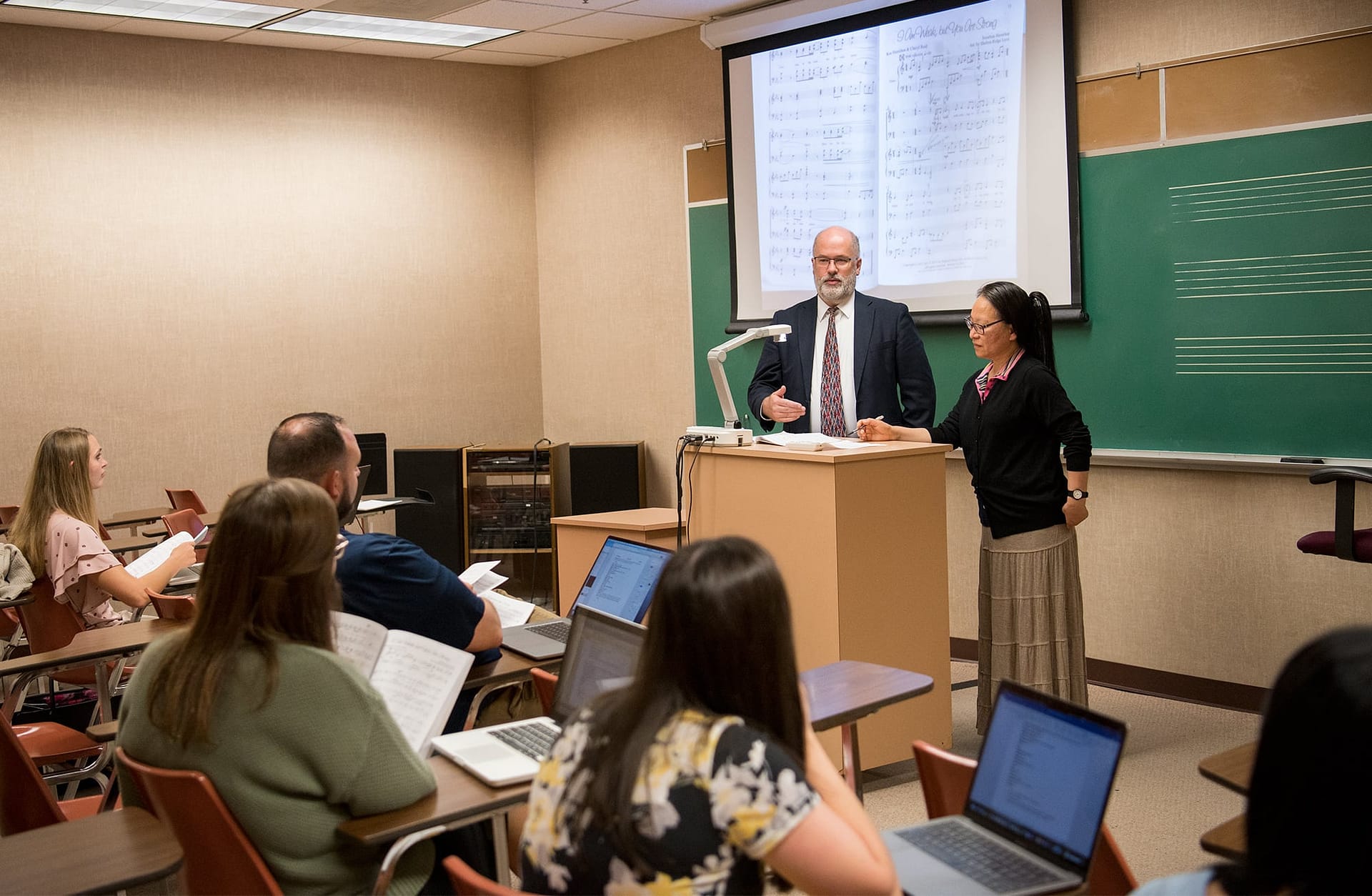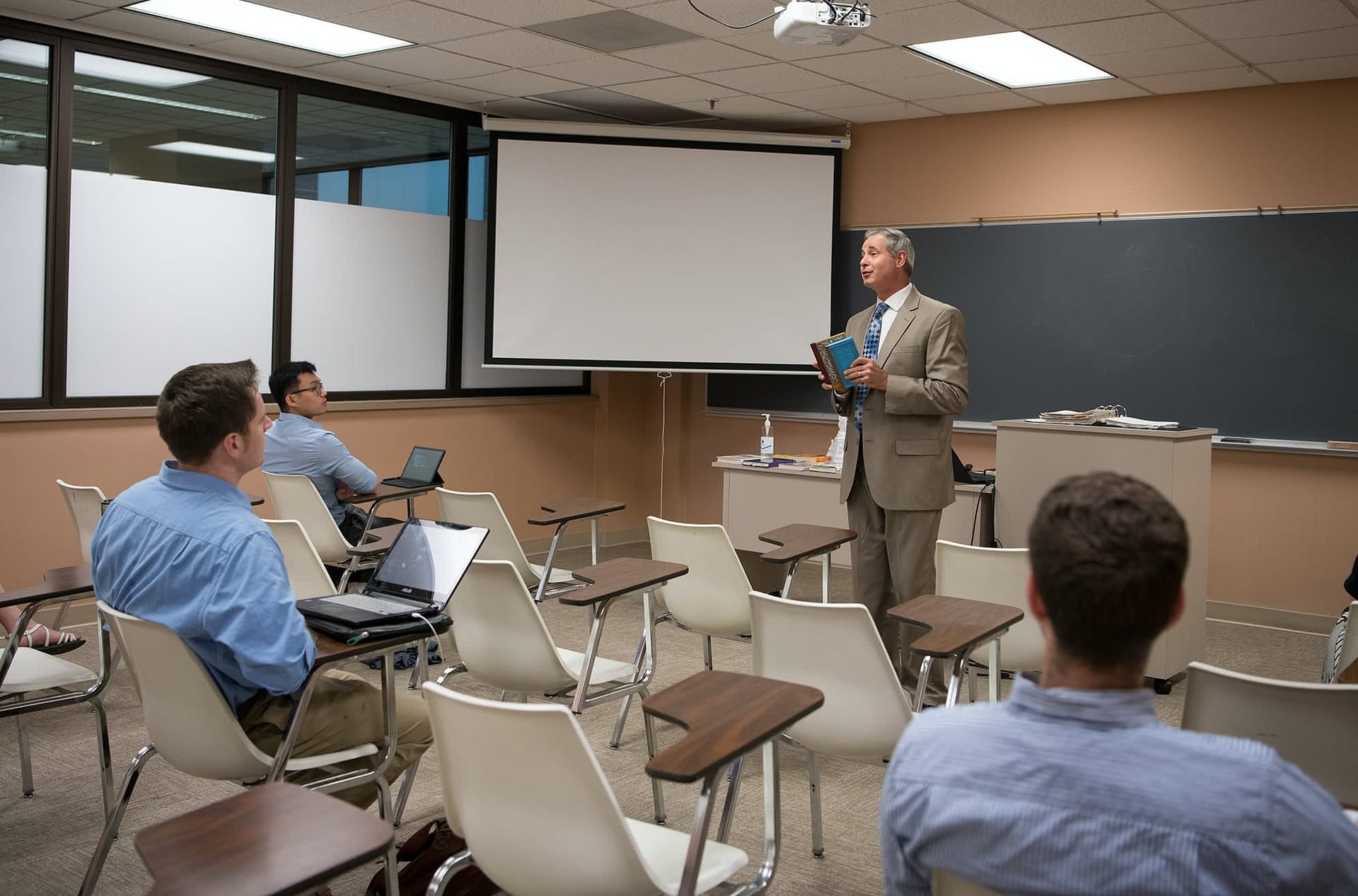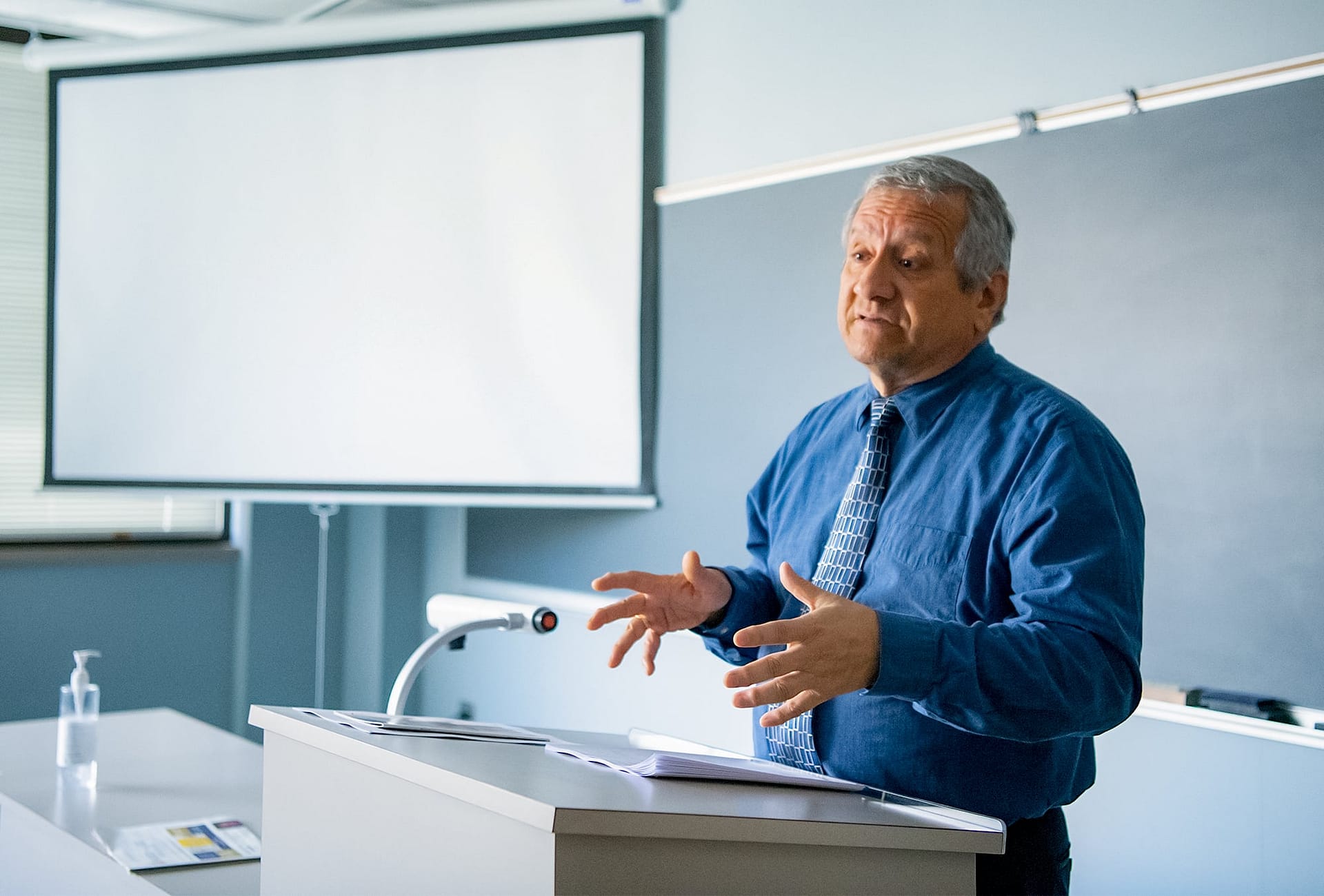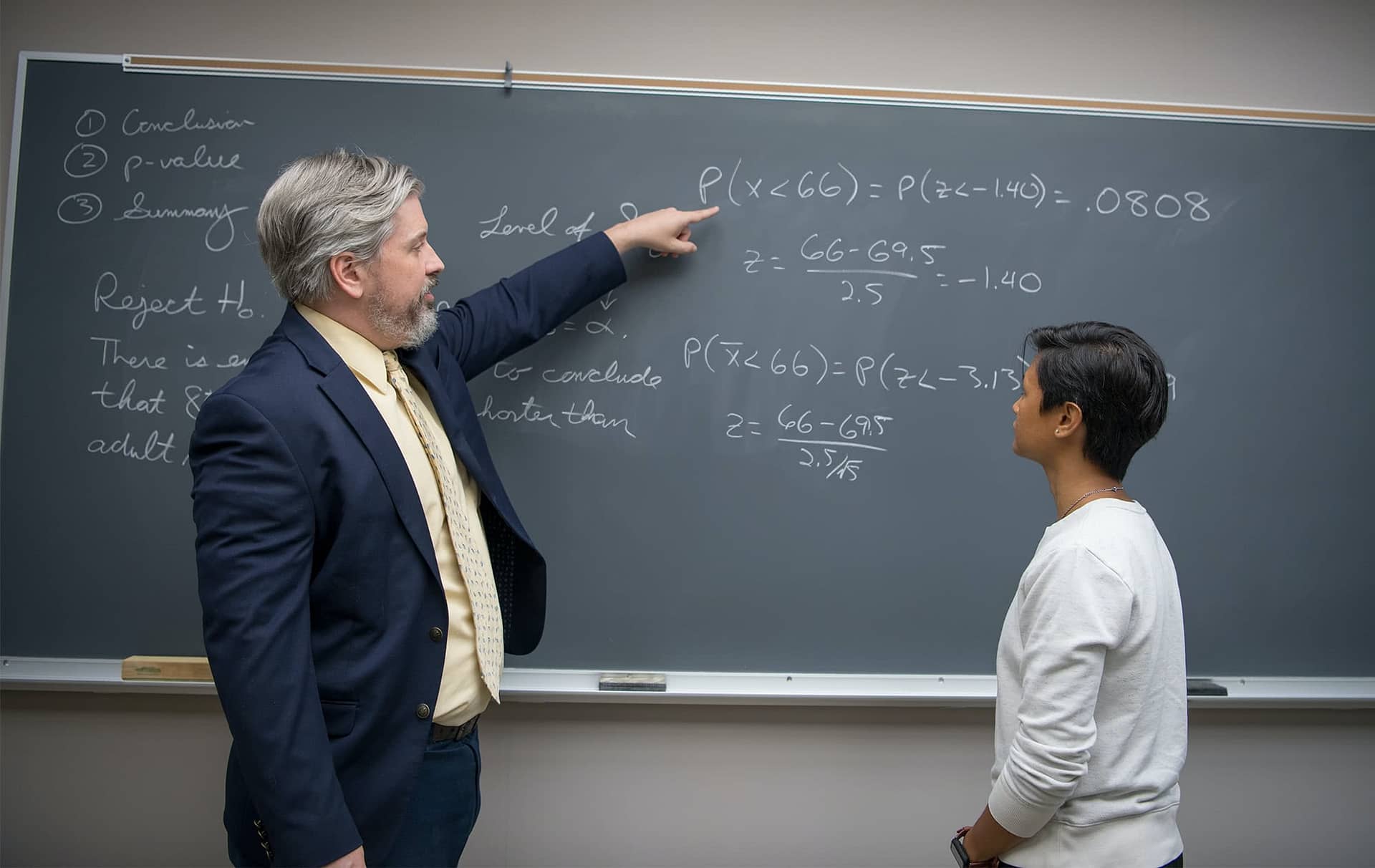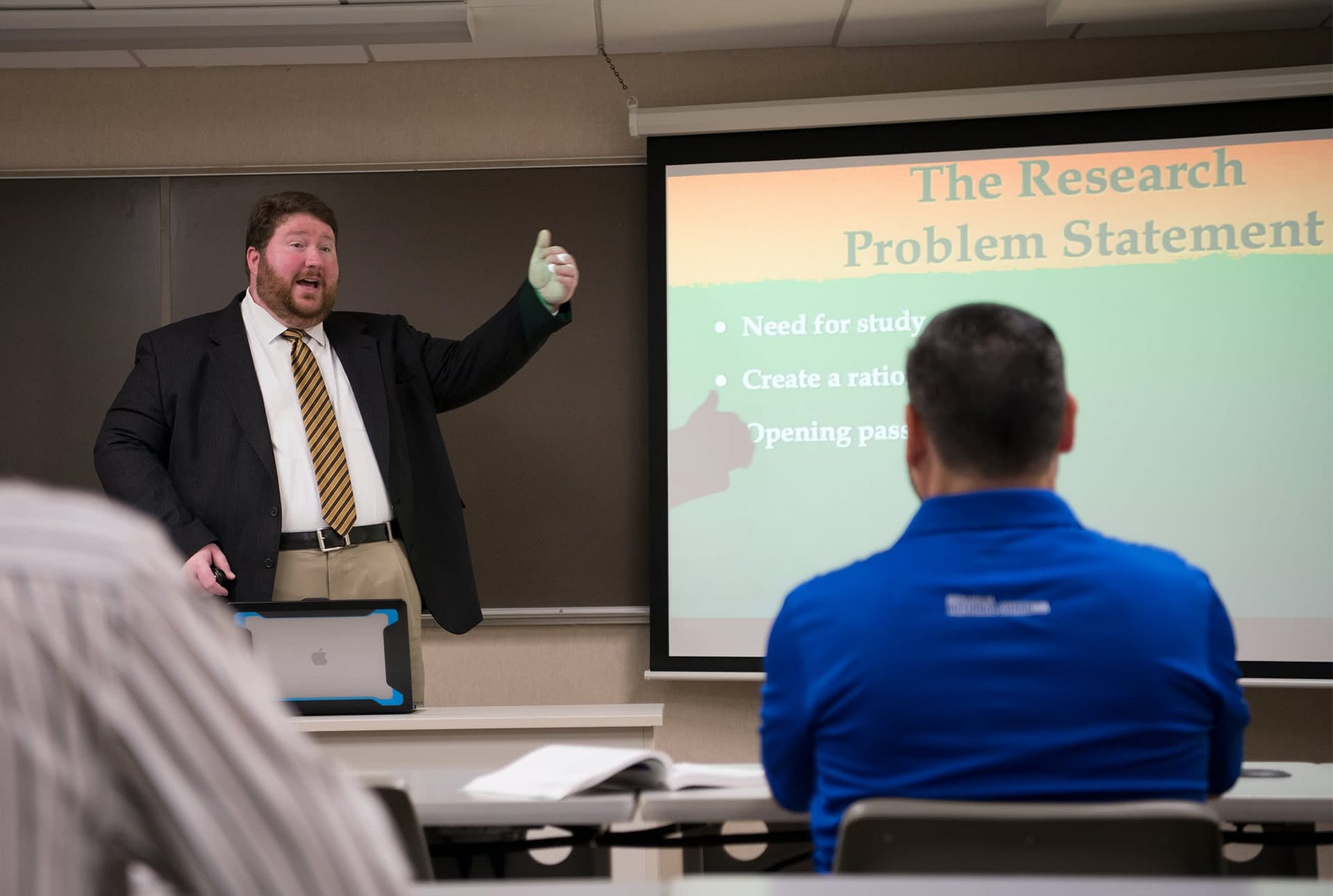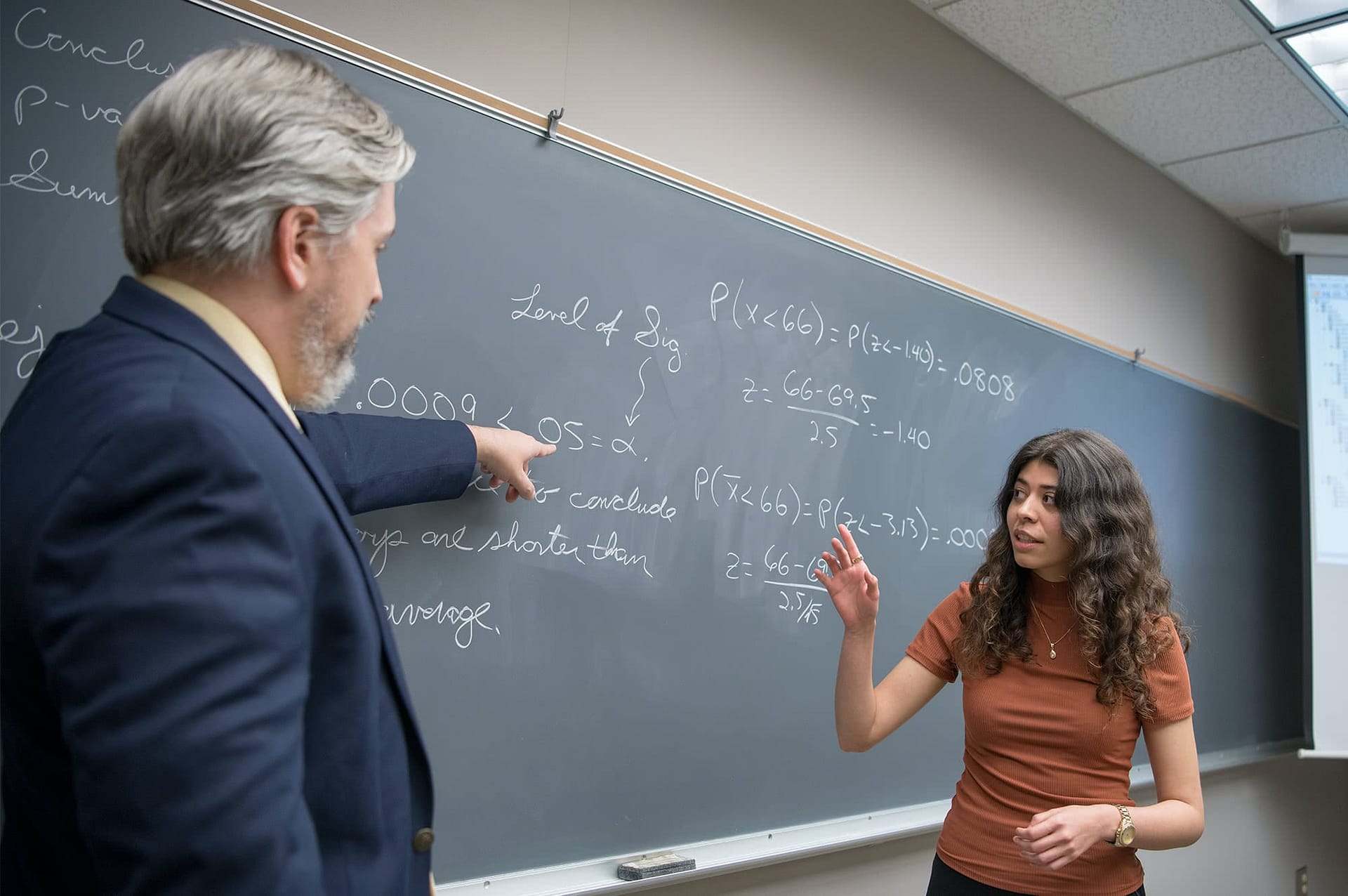As summer got underway, so did Pensacola Christian College and Pensacola Theological Seminary summer grad classes! Although students sat a greater distance from each other, on-campus classes met for in-person instruction, while students online enjoyed studying from the comforts of home. Students worked through class material focused on deepening their understanding and sharpening their skills with a concentrated schedule.

For Brian Shannon, an online grad student, the summer course came two decades into full-time ministry. Brian serves as a missionary pastor with Independent Baptist Indian Missions, Inc., and for the last 19 years, has been pastoring in the Tohono O’odham Nation in southern Arizona. After feeling led to further his education by earning his Master of Ministry degree, Brian began looking for online options. “I chose PTS after prayerfully considering several options,” said Brian. “I was called to preach after graduating from both high school and a secular state university. When I followed the Lord’s leading to pursue an advanced degree in ministry, I had plenty of ‘academic qualifications’ and over 15 years [of] ministry experience, but no previous Bible college experience. PTS recognized and accepted that previous secular education and years of ministry experience as prerequisite for seminary enrollment, for which I am very grateful.”
While he was apprehensive of diving back into the life of a student at first, Brian has appreciated the flexibility of studying online as well as the quality of the class material. “Taking the classes online allows me to meet the needs of my family and the ministry, while still gaining a quality education that will be useful throughout my life,” he explained. “The broad array of ministry background represented by the teachers and guest lecturers has been invaluable. Many times, I’ve been blessed to learn not only the subject content of a class but also to learn as that matter is applied practically through the examples.”
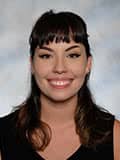
Emilie Whitcher is studying for her studio art master’s degree, an ideal next step toward being able to teach and encourage art students of her own. “My first month or so was very rough as I had to transition out of the mindset of an undergrad/what I thought grad school would be, into the independent hard work that grad school is,” she said. “The assignments are generally very open compared to undergrad. I knew that I didn’t want grad school to be anything but challenging and enlightening. Before I started the master’s program, I was told by a studio art master’s grad [to] make every project count. So I try to make every project take me one step closer to getting the job I want.”
Without having to keep up with several classes at once, Emilie has valued how enabling and focused her graduate classes have been. While much of her coursework is independent, she checked in with her teacher weekly as she made progress on each of her pieces, allowing for discussion, pointers, and further instruction on an assignment’s technique. “It’s an amazing thing to have a teacher who sees your work, understands what you’re trying to say, pushes you towards your goal, and welcomes the experimentation and mistakes that will get you there. I’ve seen my confidence and understanding grow so much under these artists. I knew the ‘what,’ but not the ‘how’ or the ‘why,’” Emilie said. “That’s been invaluable to me. That’s the kind of teacher I want to be.”
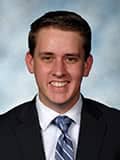
Because he and his wife desire to become part of a ministry, Zeth Hicks is studying to earn his Master of Divinity degree. “As I neared the end of my senior year, I began to realize that although the undergraduate program had done a great job of equipping me for service, I was in need of additional training,” he said. “Dr. [Karl] Stelzer frequently explains this by saying, ‘The undergraduate program equips you with the tools that you need, and the M.Div. program helps you sharpen those tools so that you can use them more effectively.’ One of the greatest features of the M.Div. is the opportunity to take many education classes. These classes have helped me learn how to be effective in both church ministry and education. The practical ministry classes are full of examples of situations that we will likely face in ministry. The instructors weave ministry advice into a lot of the lessons. This is beneficial for helping us make the connection between what we are learning and how we will use that knowledge in the future.”
Zeth has enjoyed the structured, punctuated format that sets apart the summer learning experience while continuing his education at his alma mater. “In-person summer classes are completely different than any other class format. They are extremely focused, very intense, and also really fun. I have found that summer classes have taught me to work quickly while still producing quality material,” he said. “Continuing my education at PTS after graduating from PCC has specifically helped me grow in what I have already known. My teachers, in a sense, are able to continue what they started while I was an undergrad.”
These students have been glad to further their education through their graduate summer classes, allowing them to sharpen their skills and advance toward their calling.
To learn more about PCC’s and PTS’s graduate degrees, visit www.pcci.edu/Grad.

